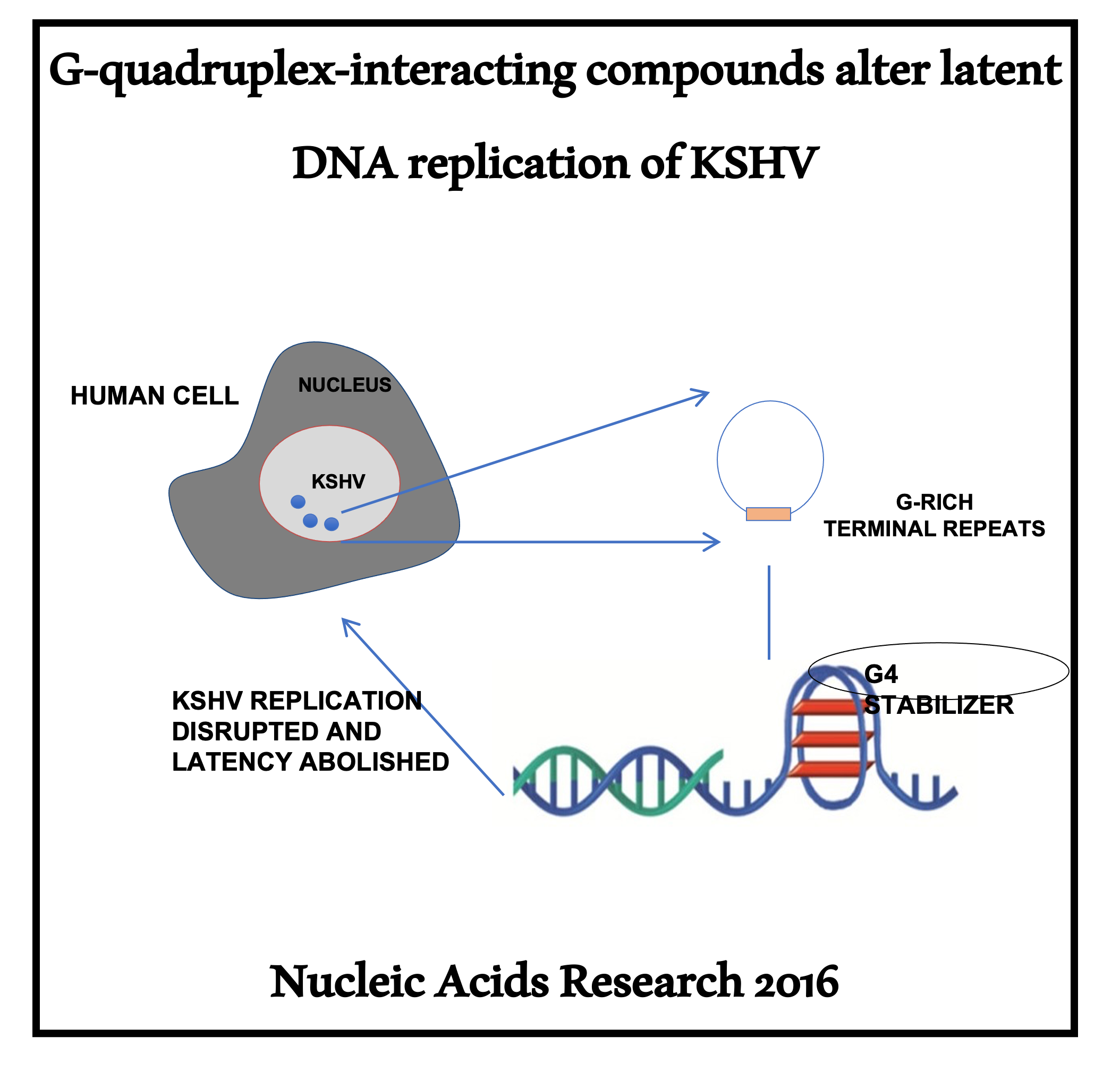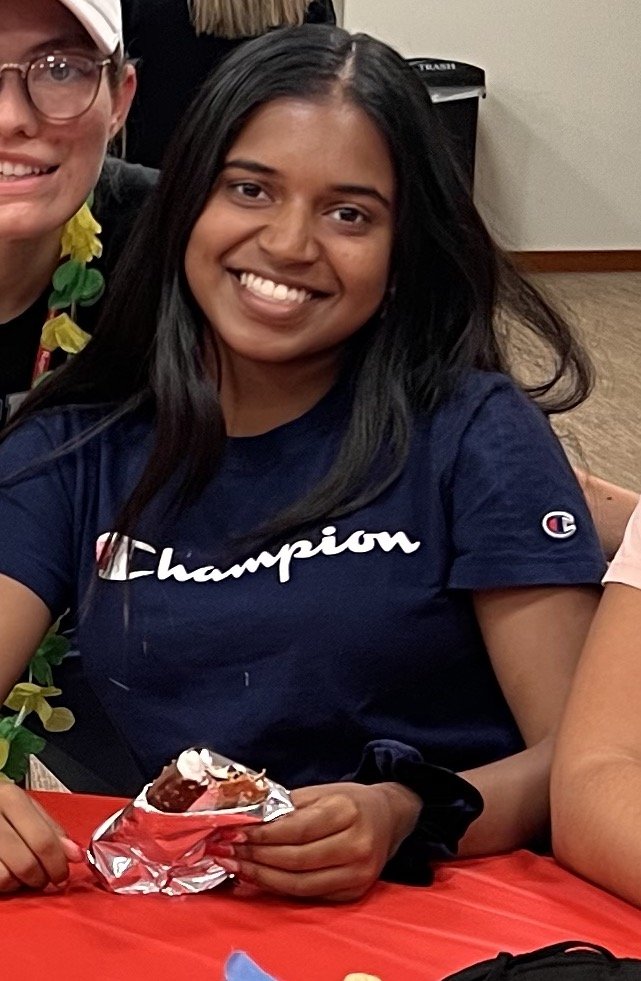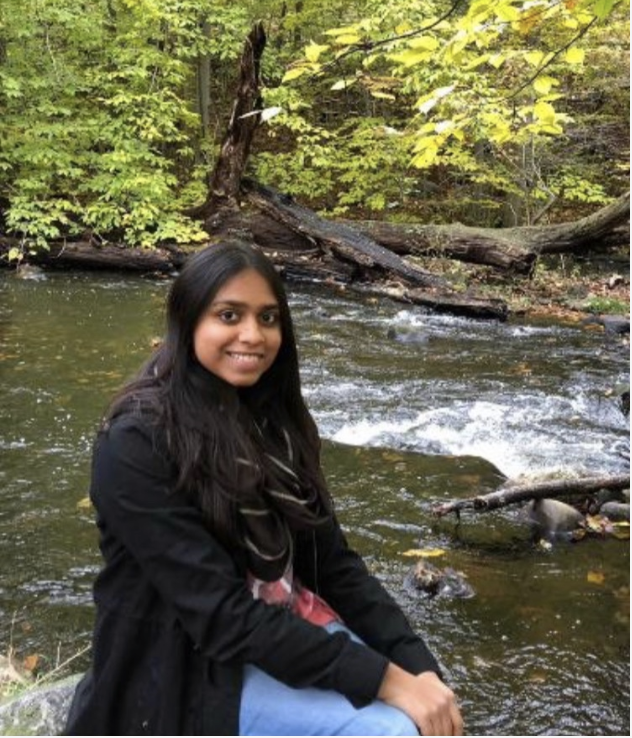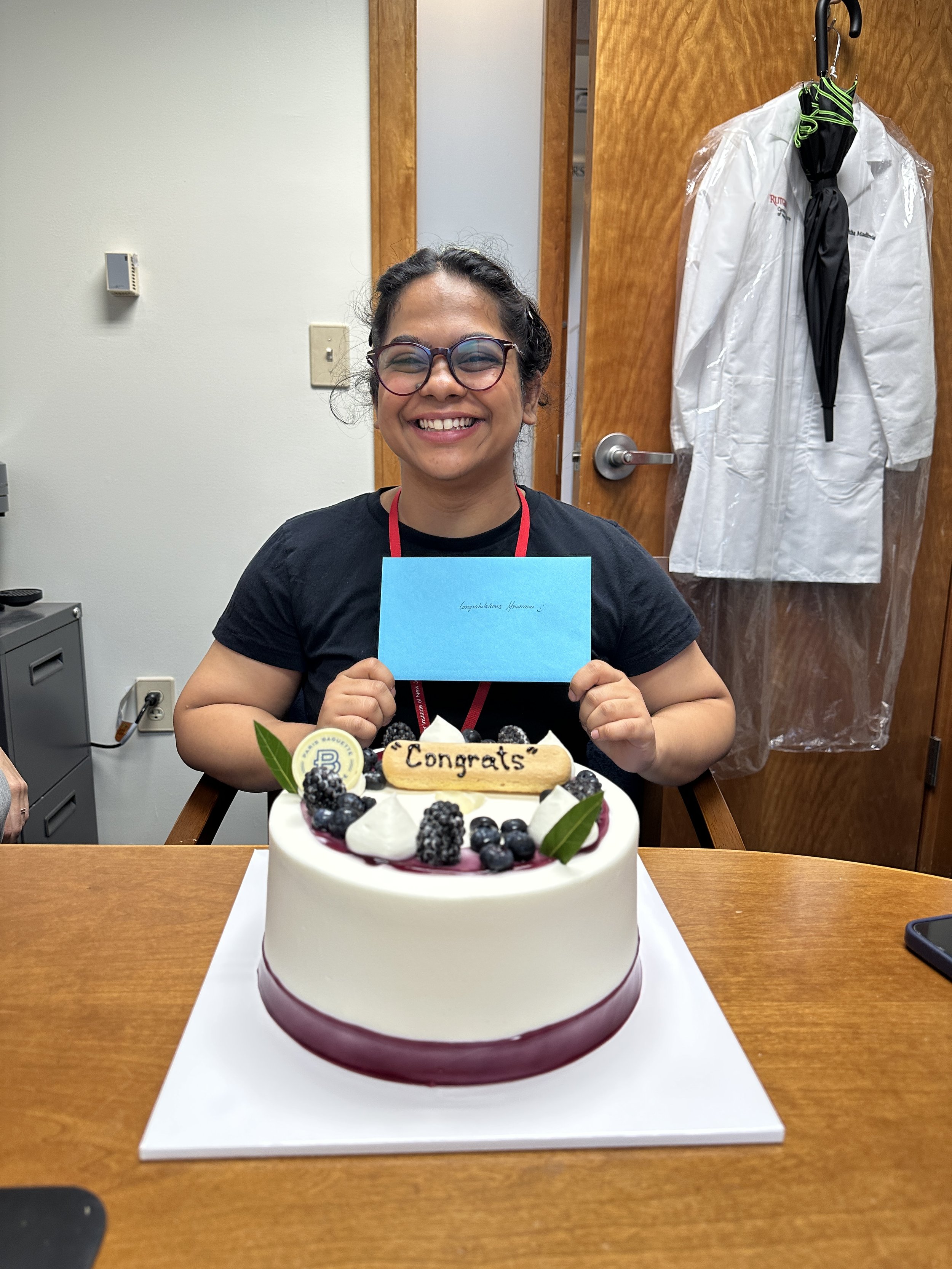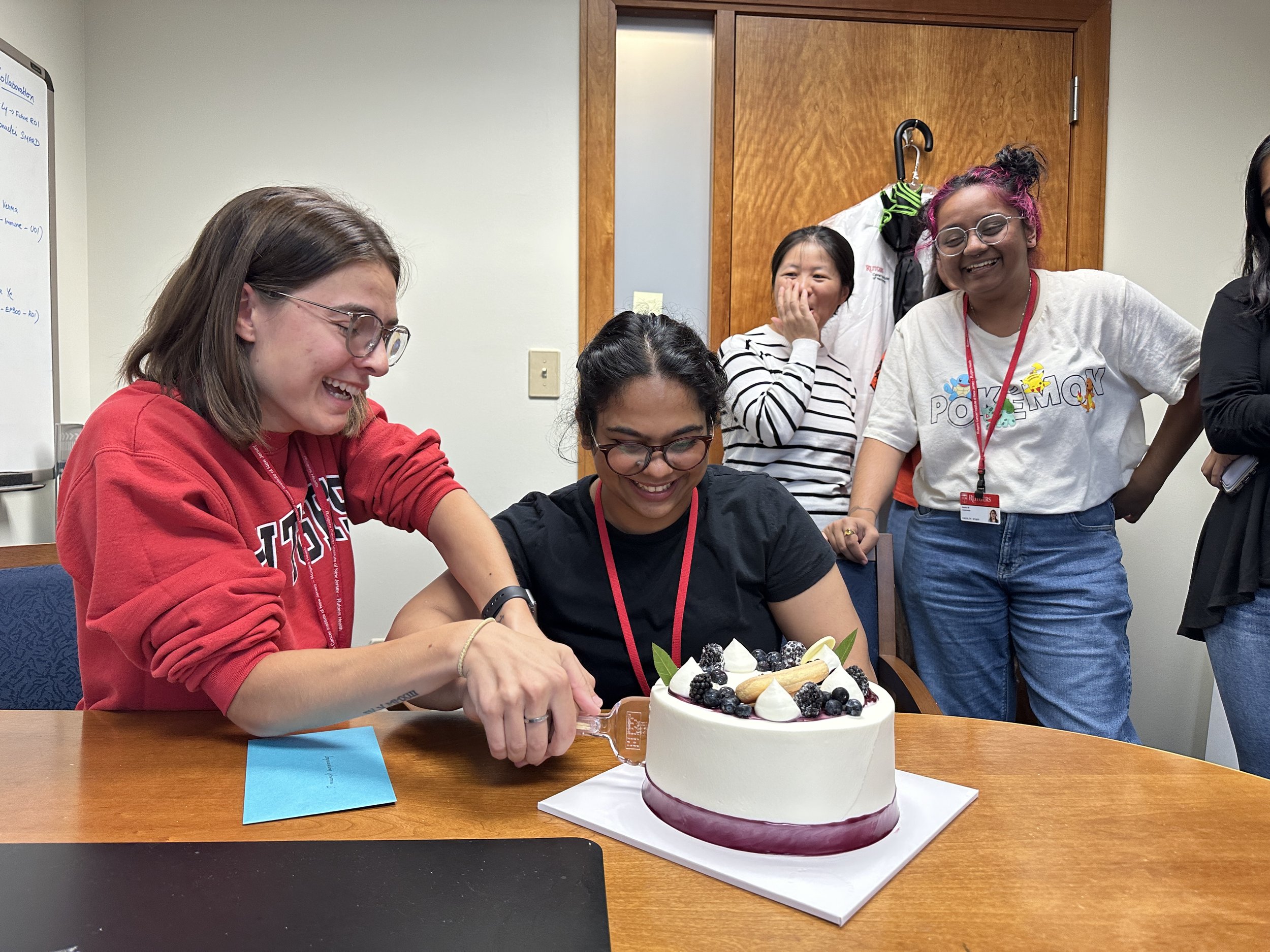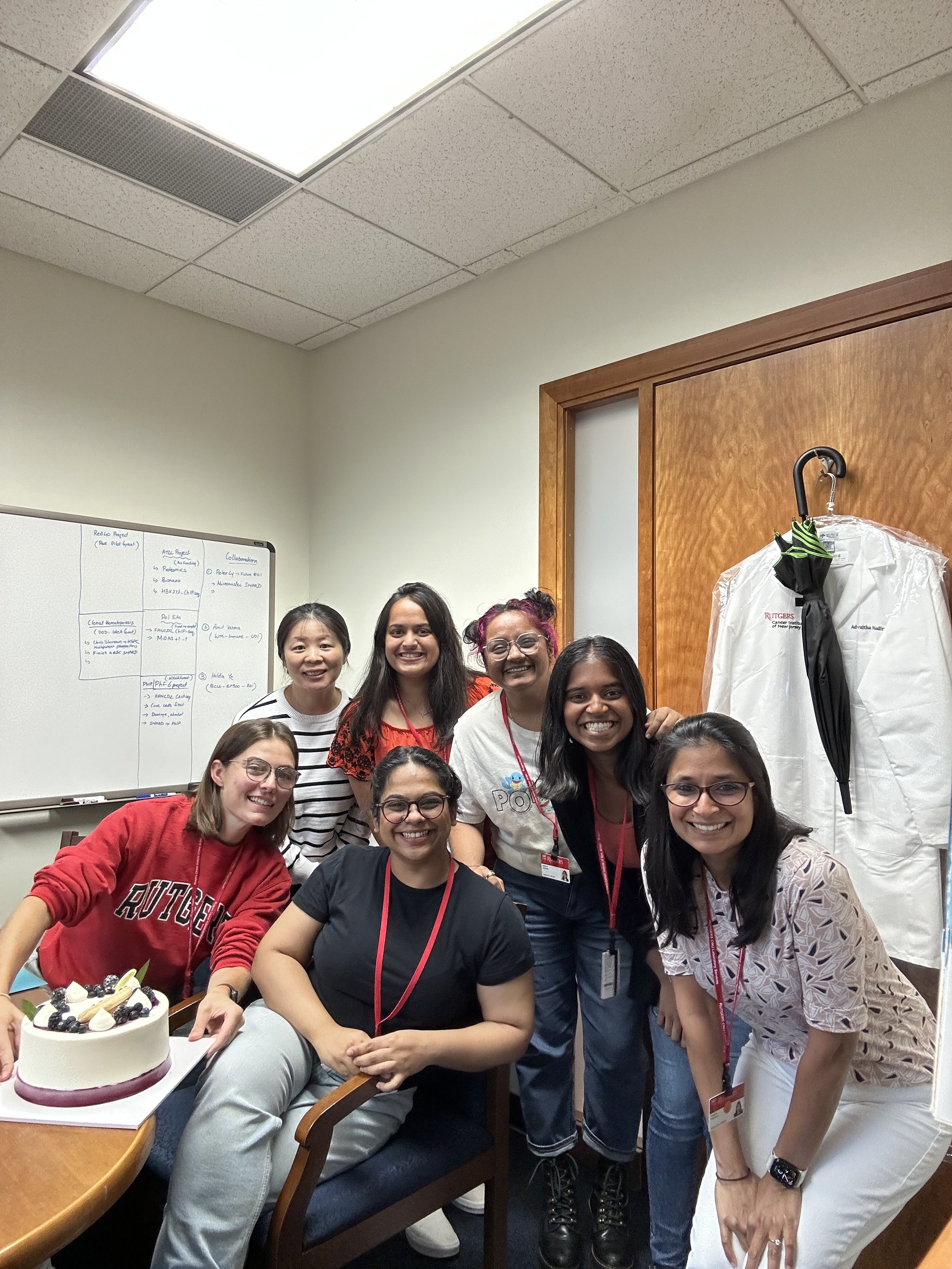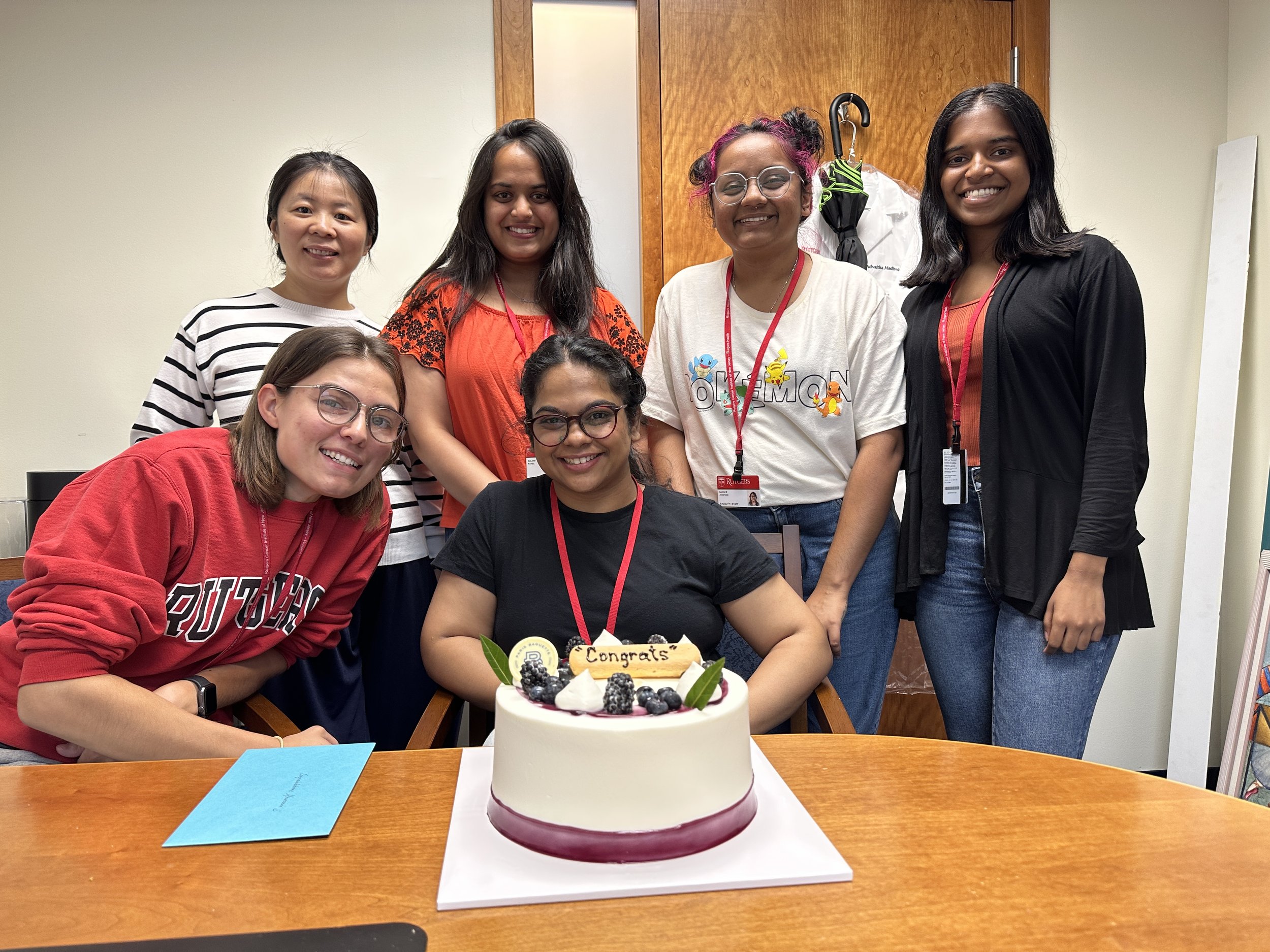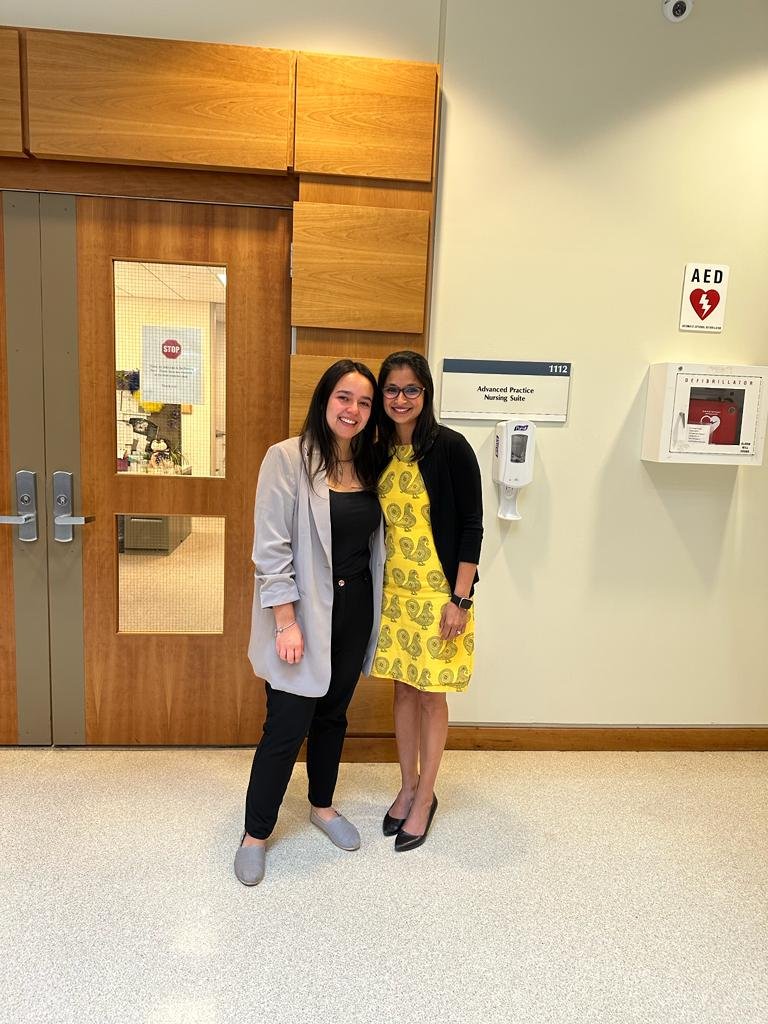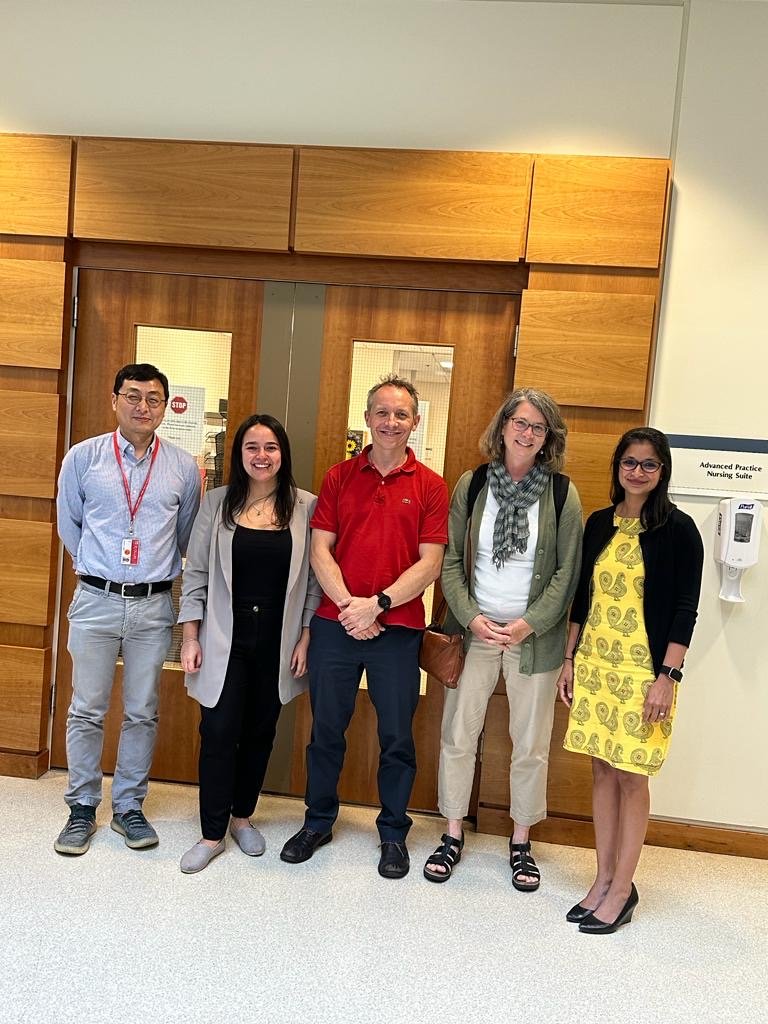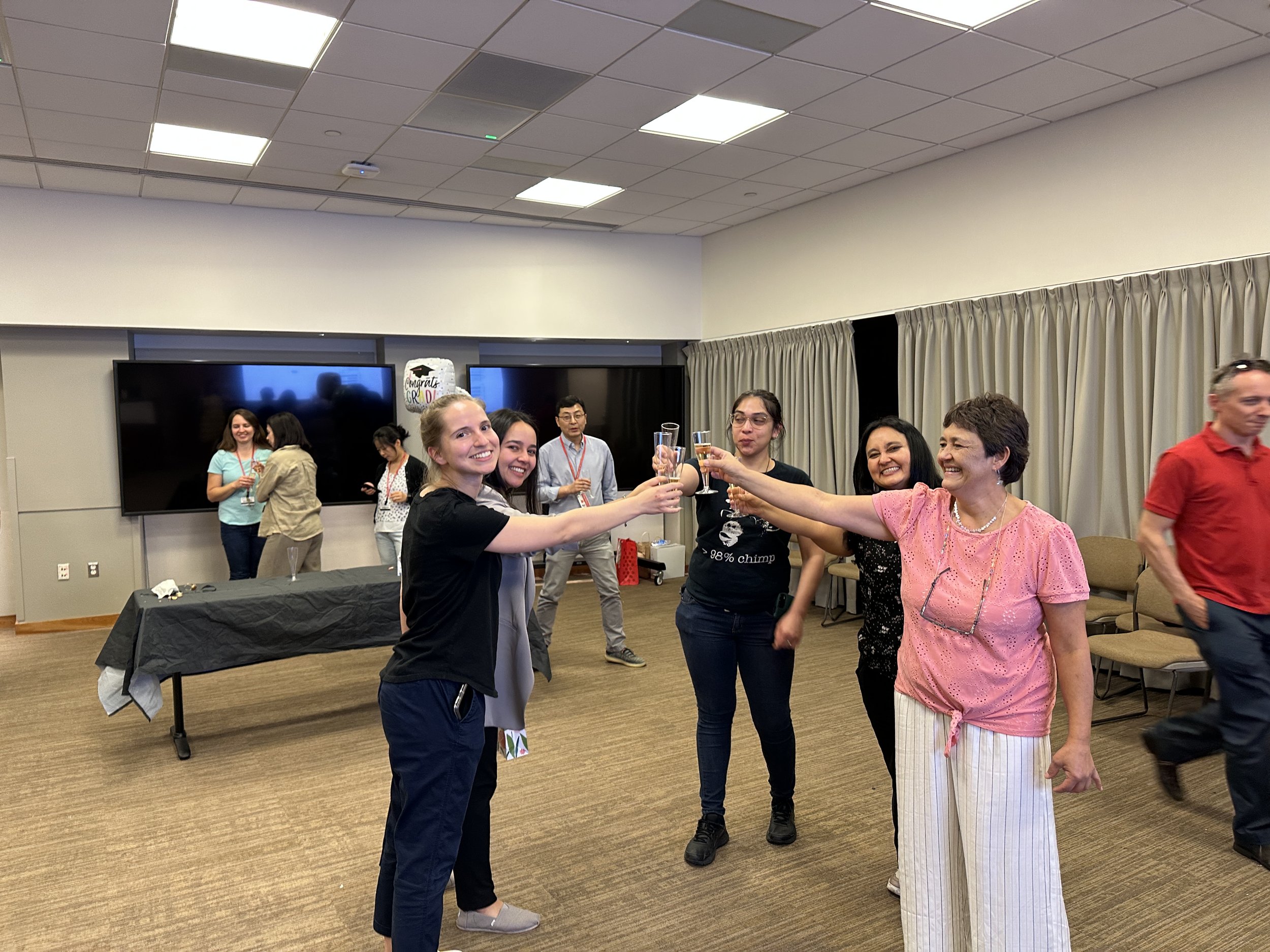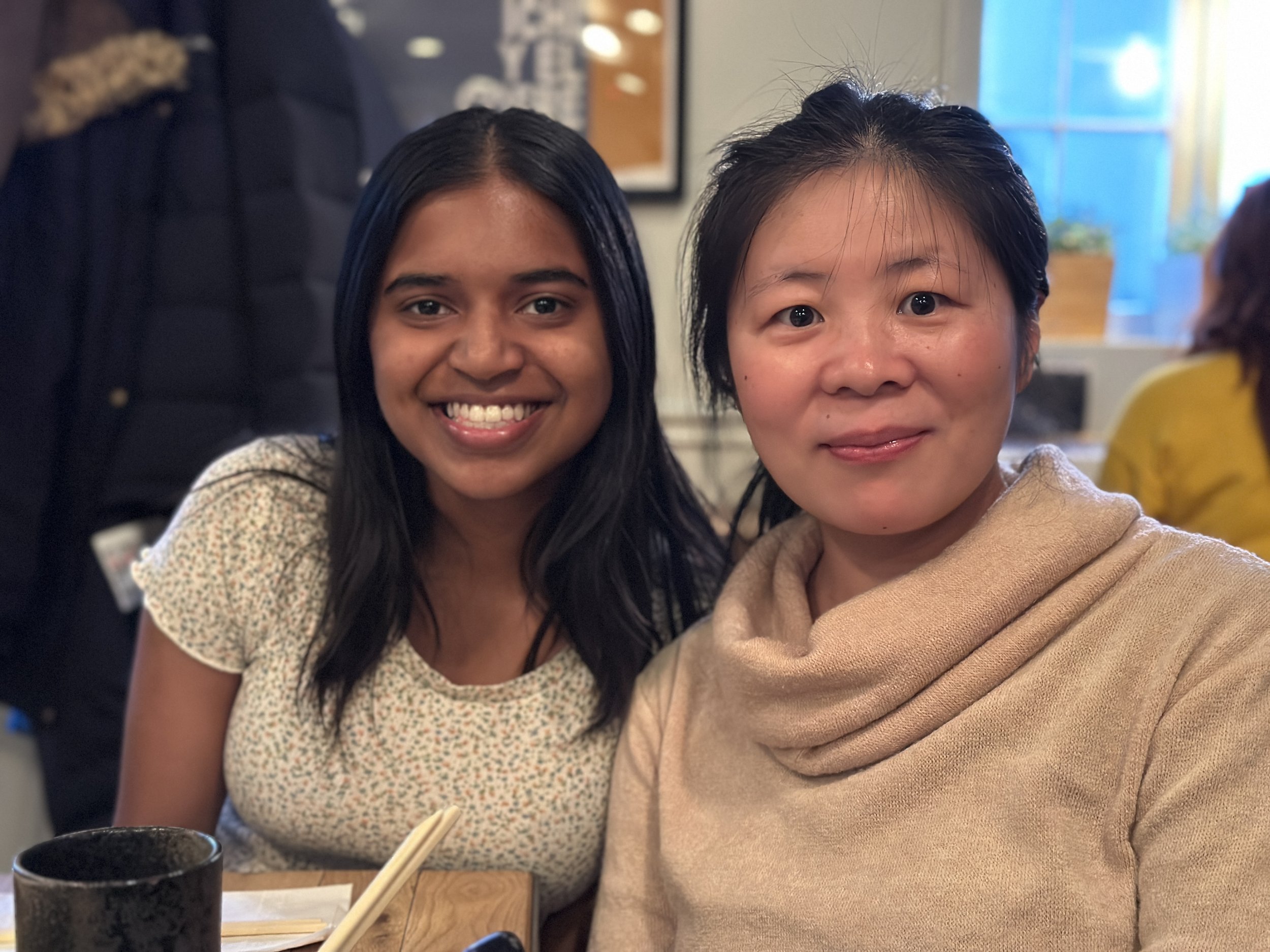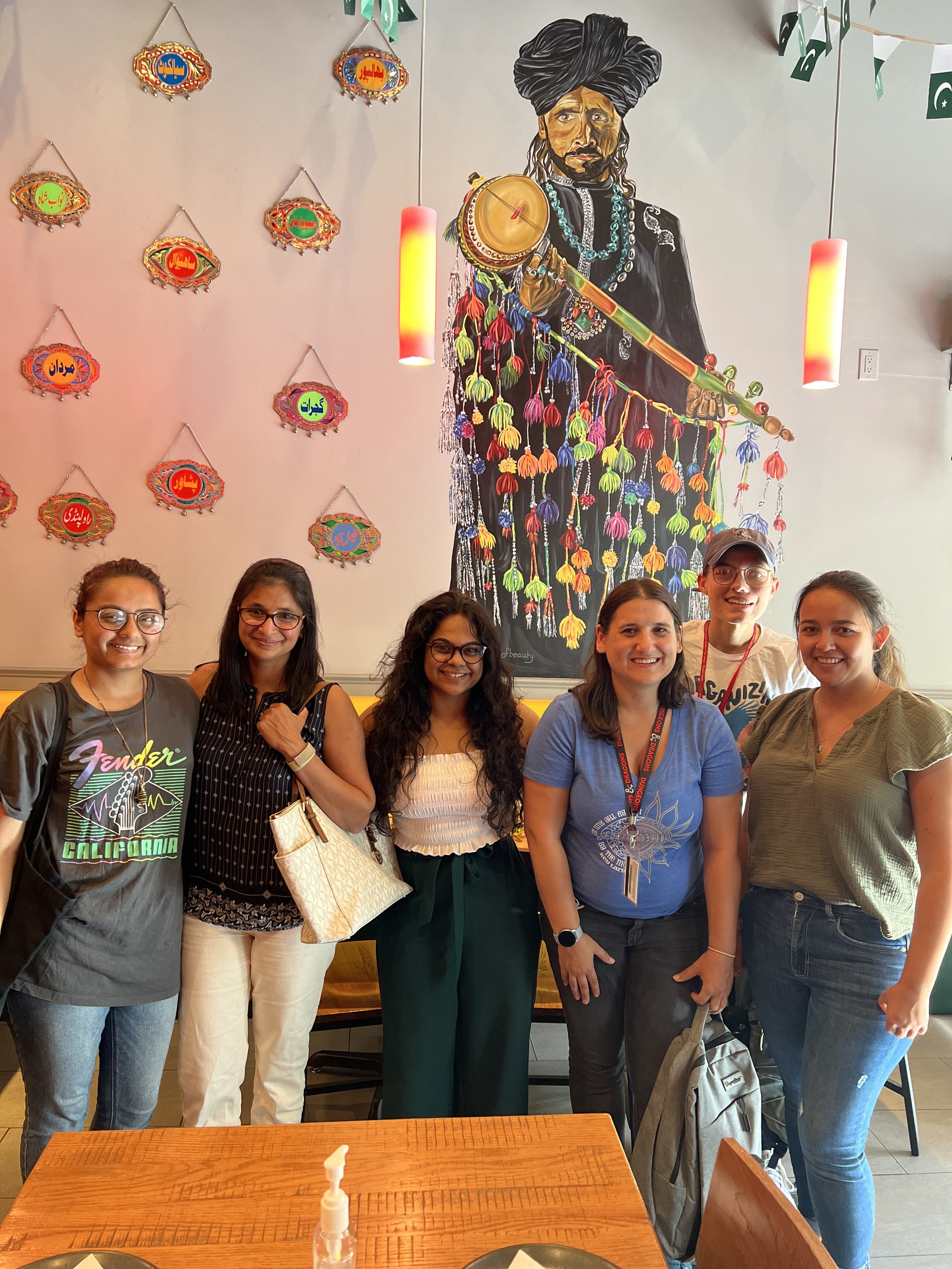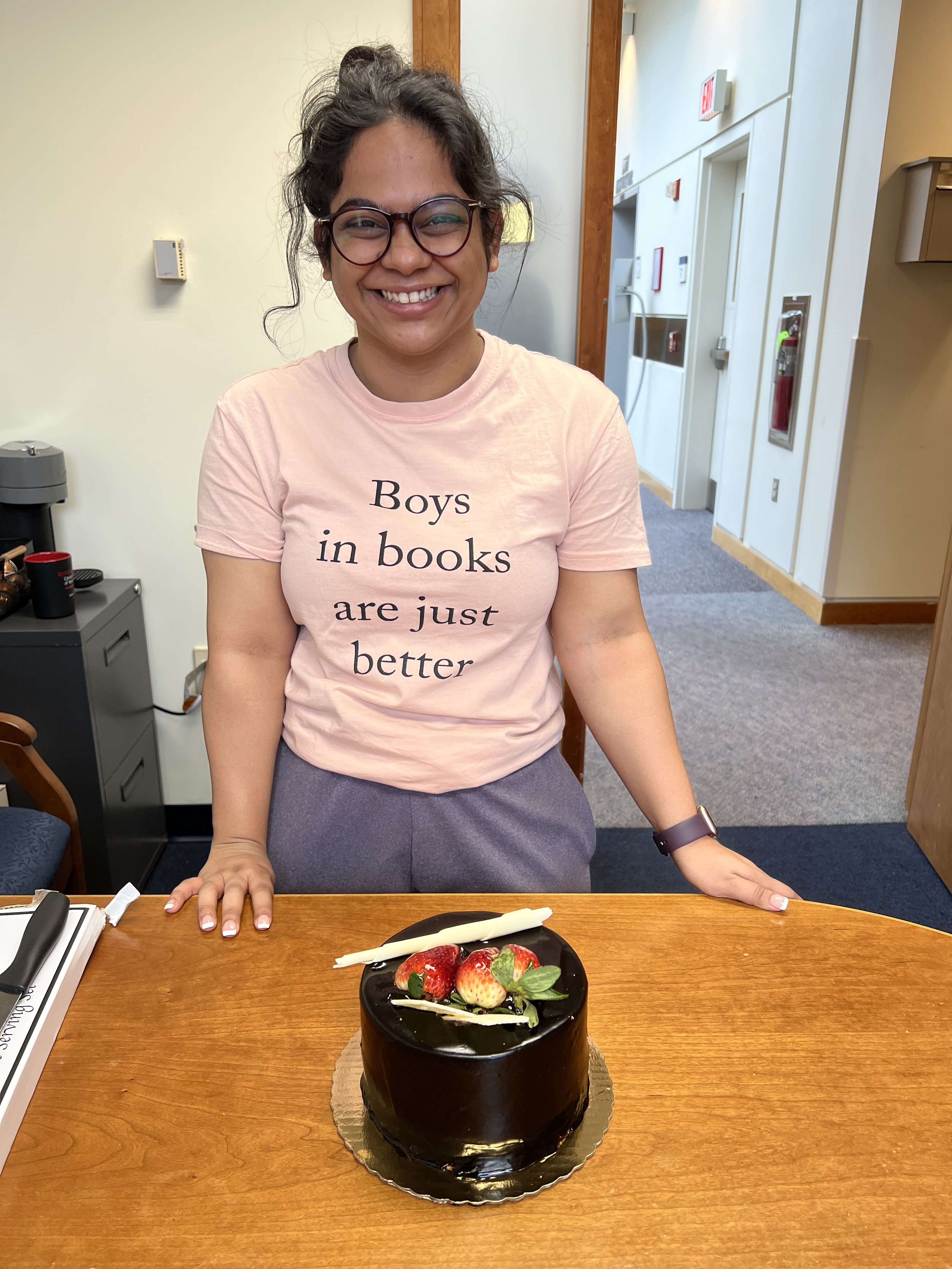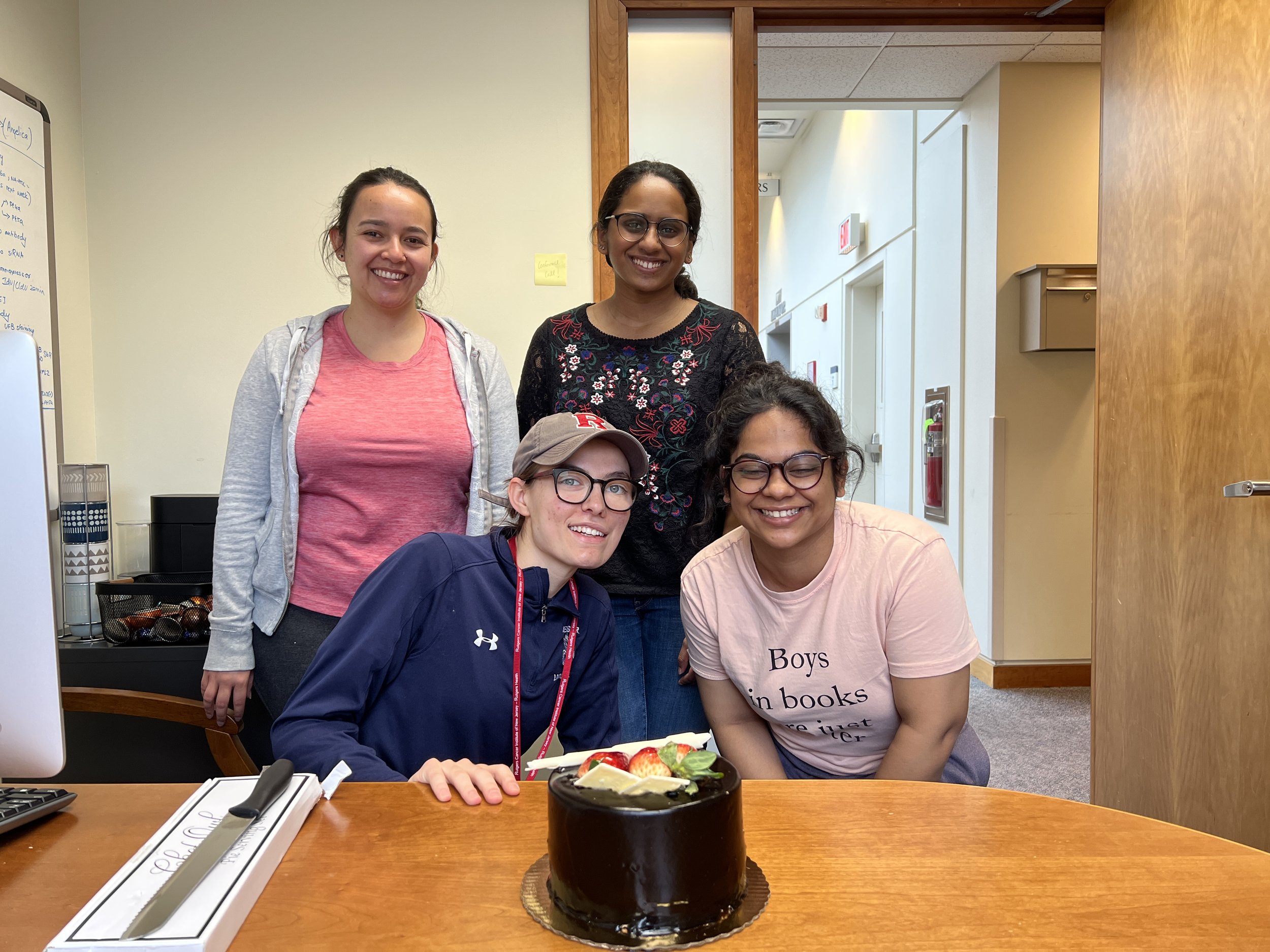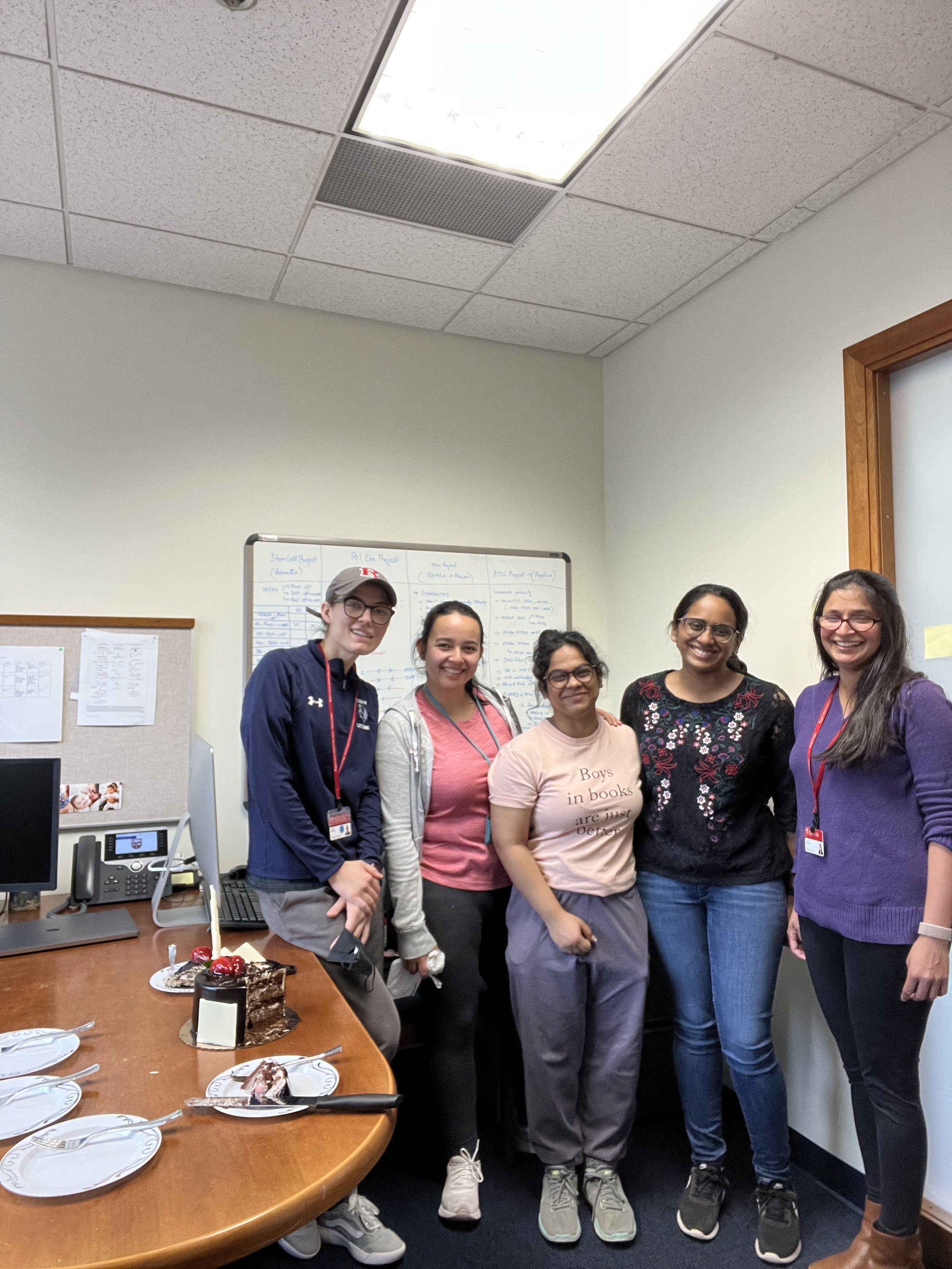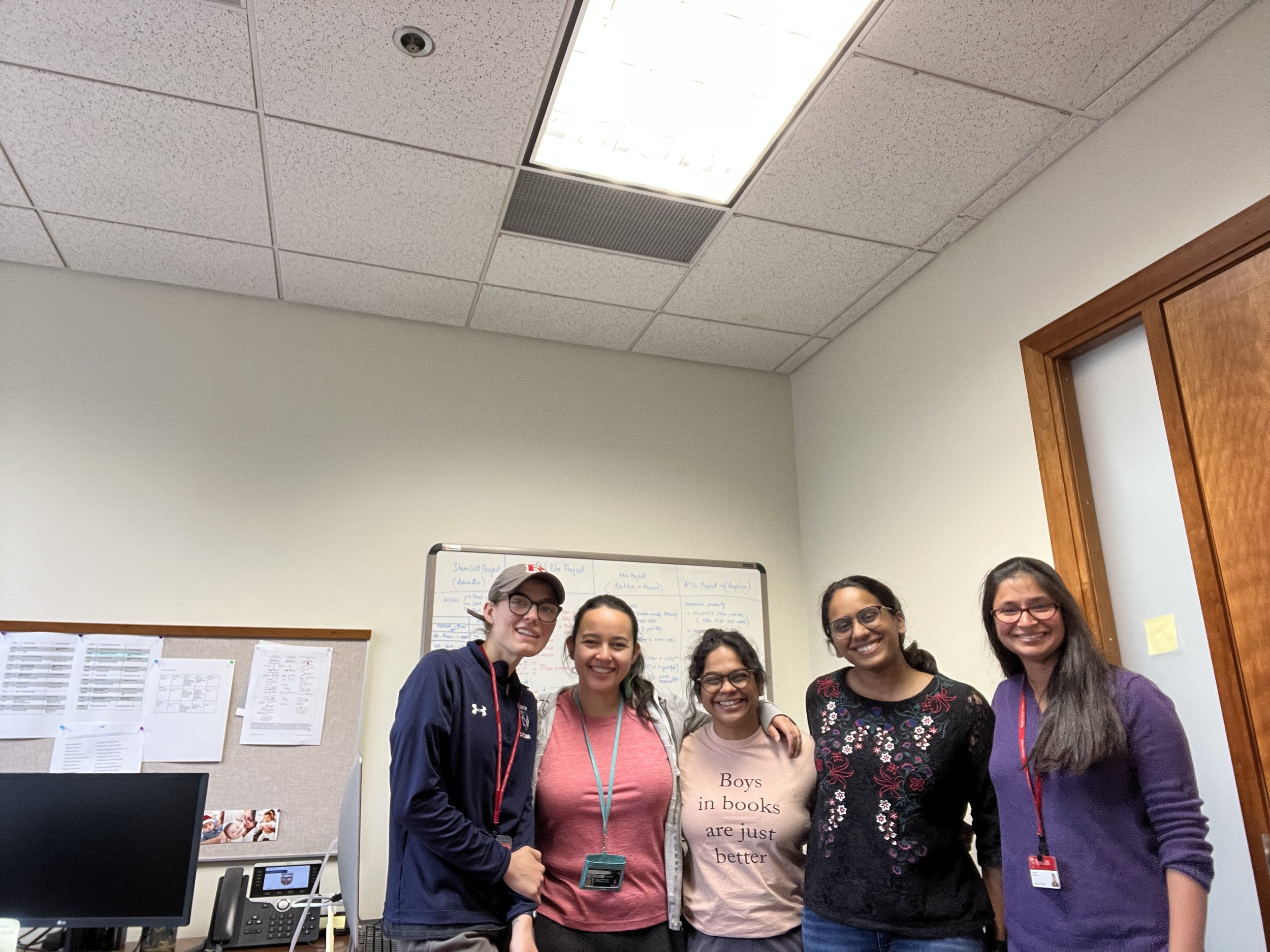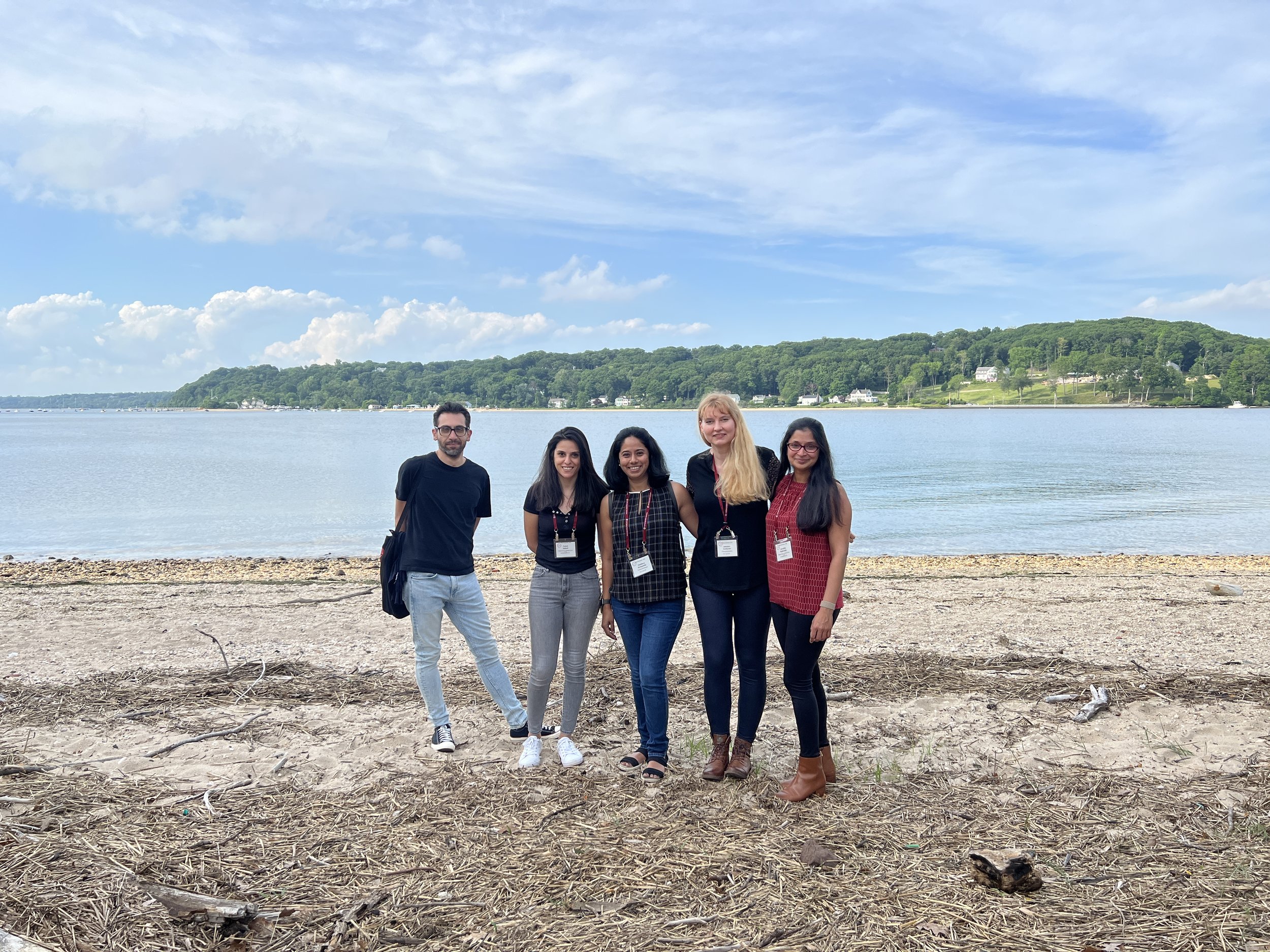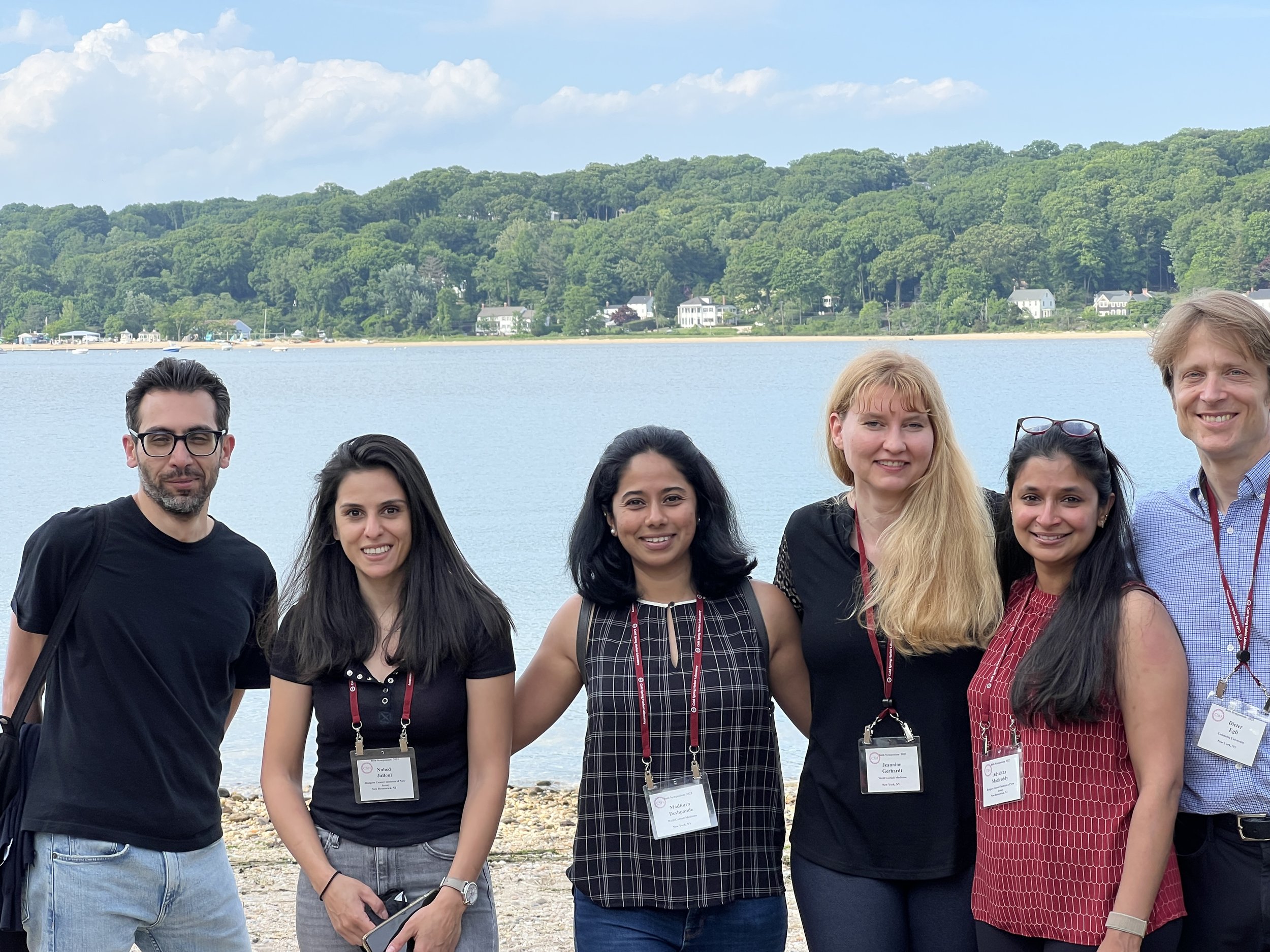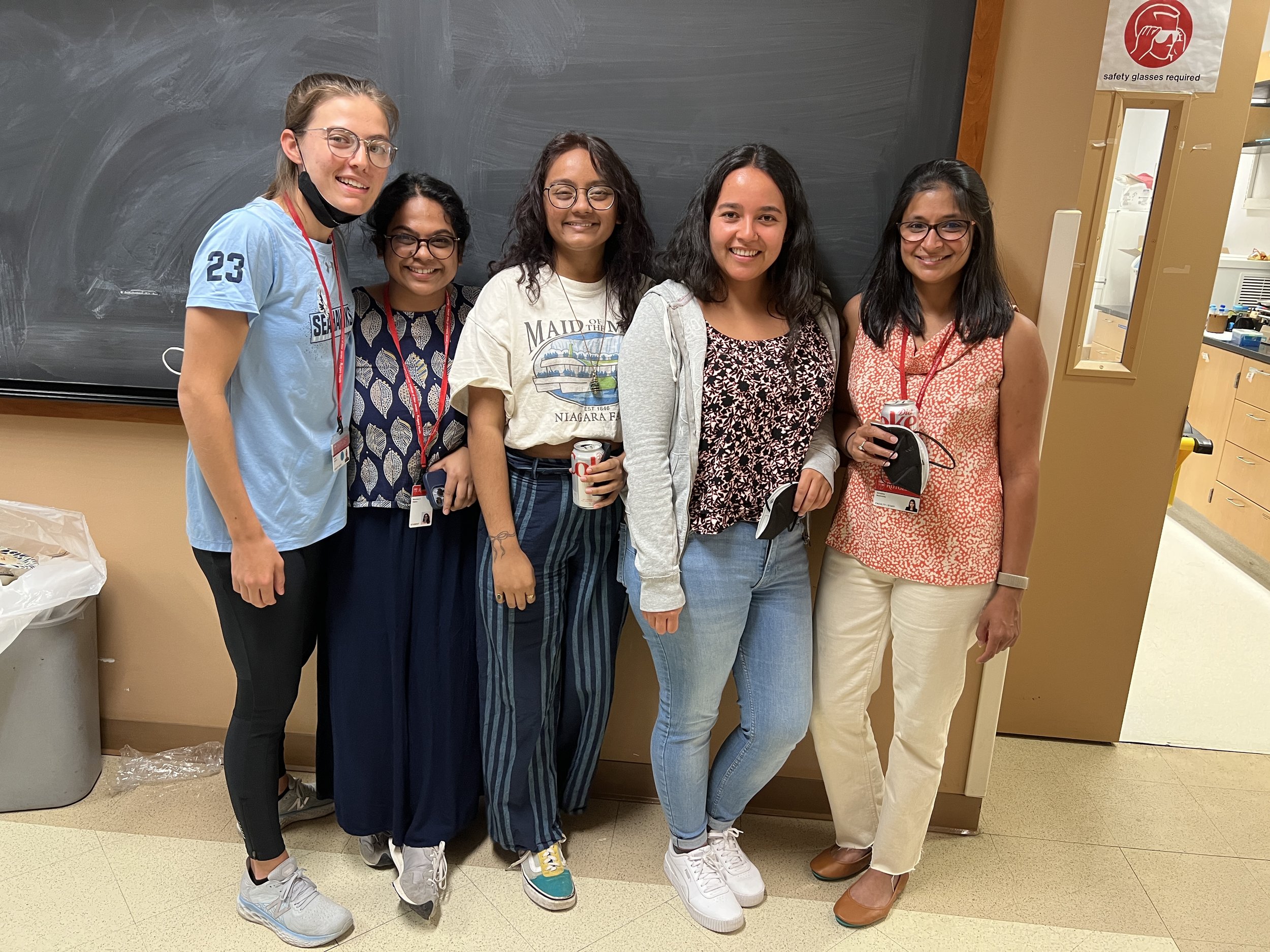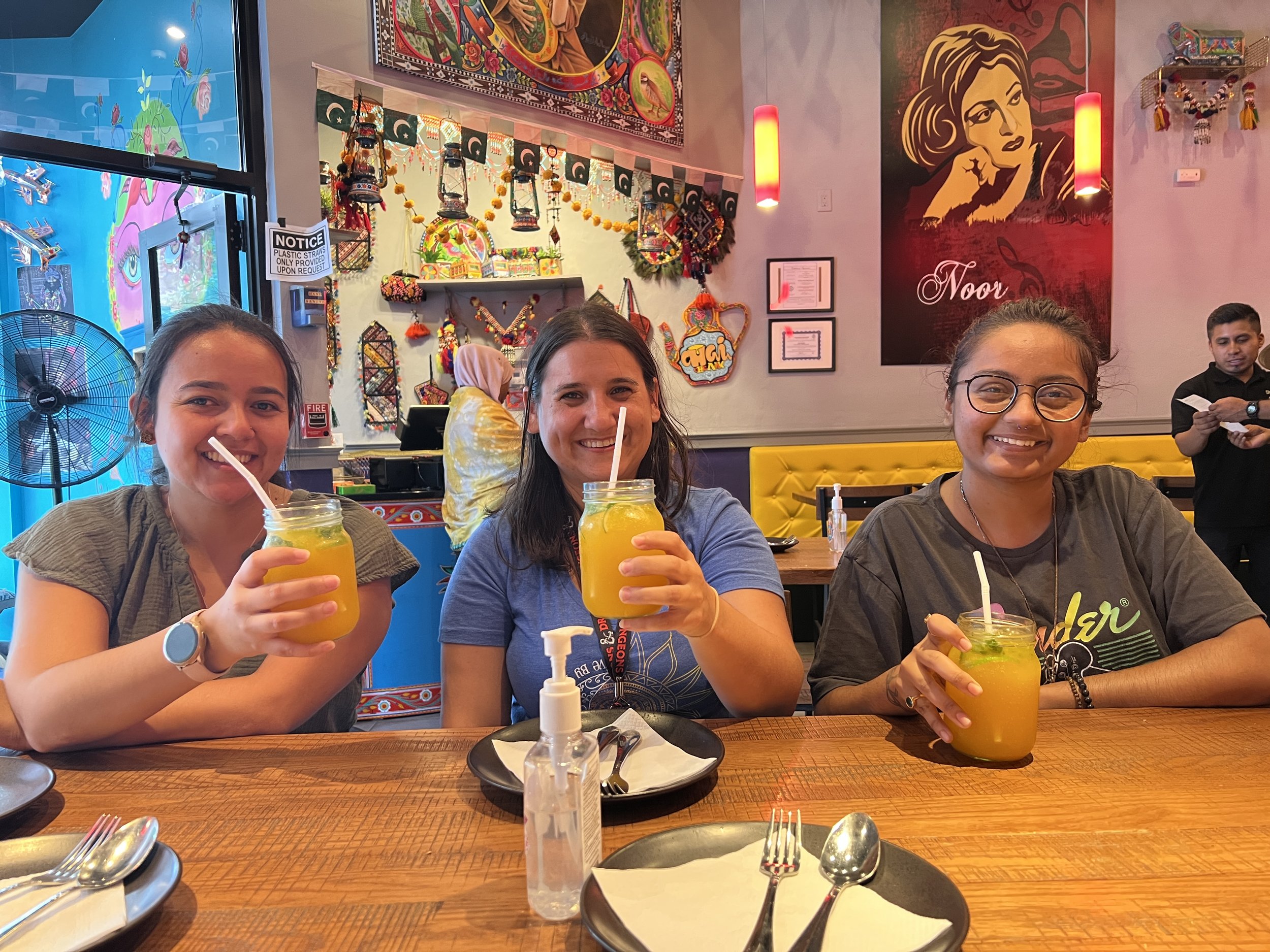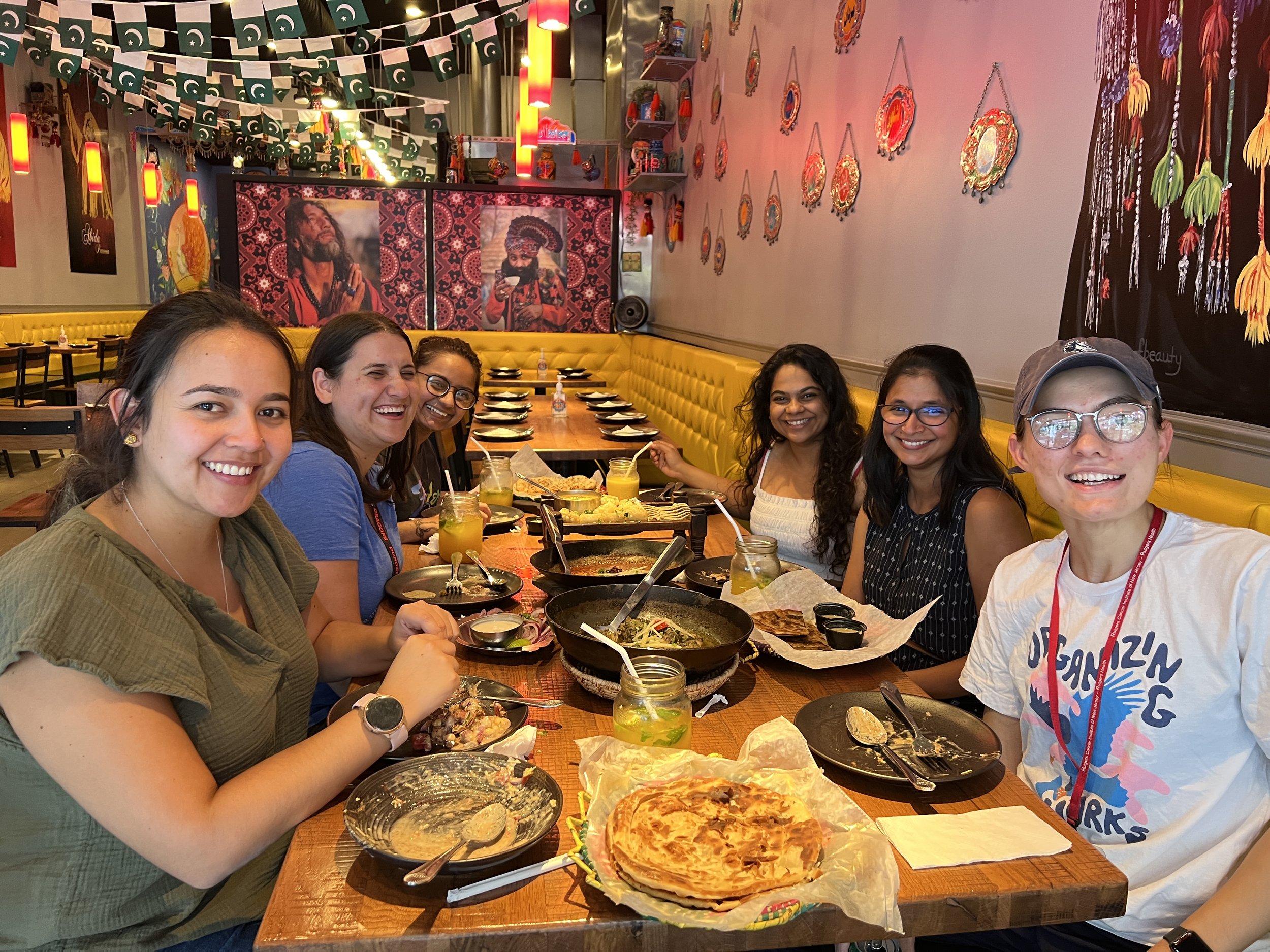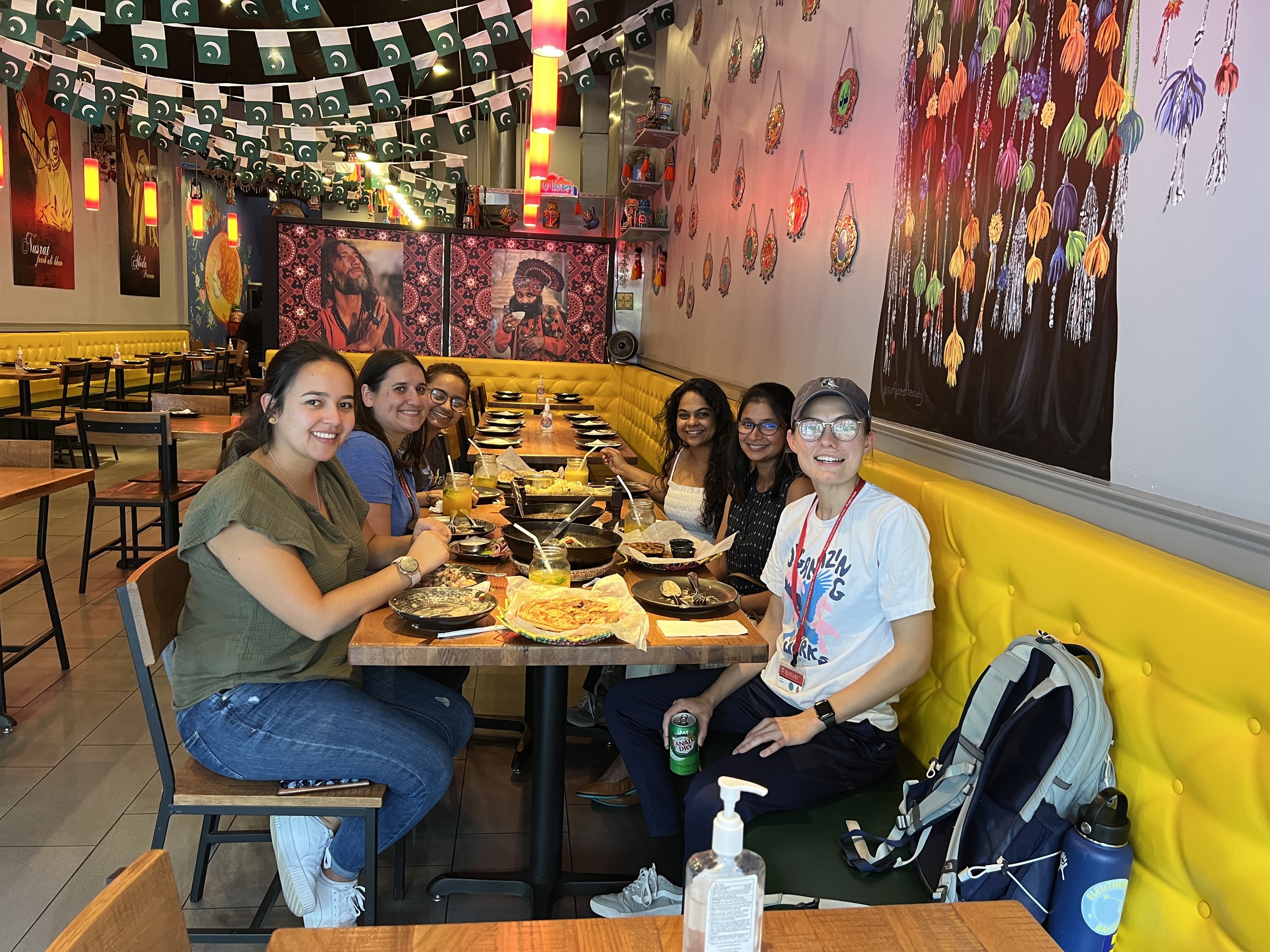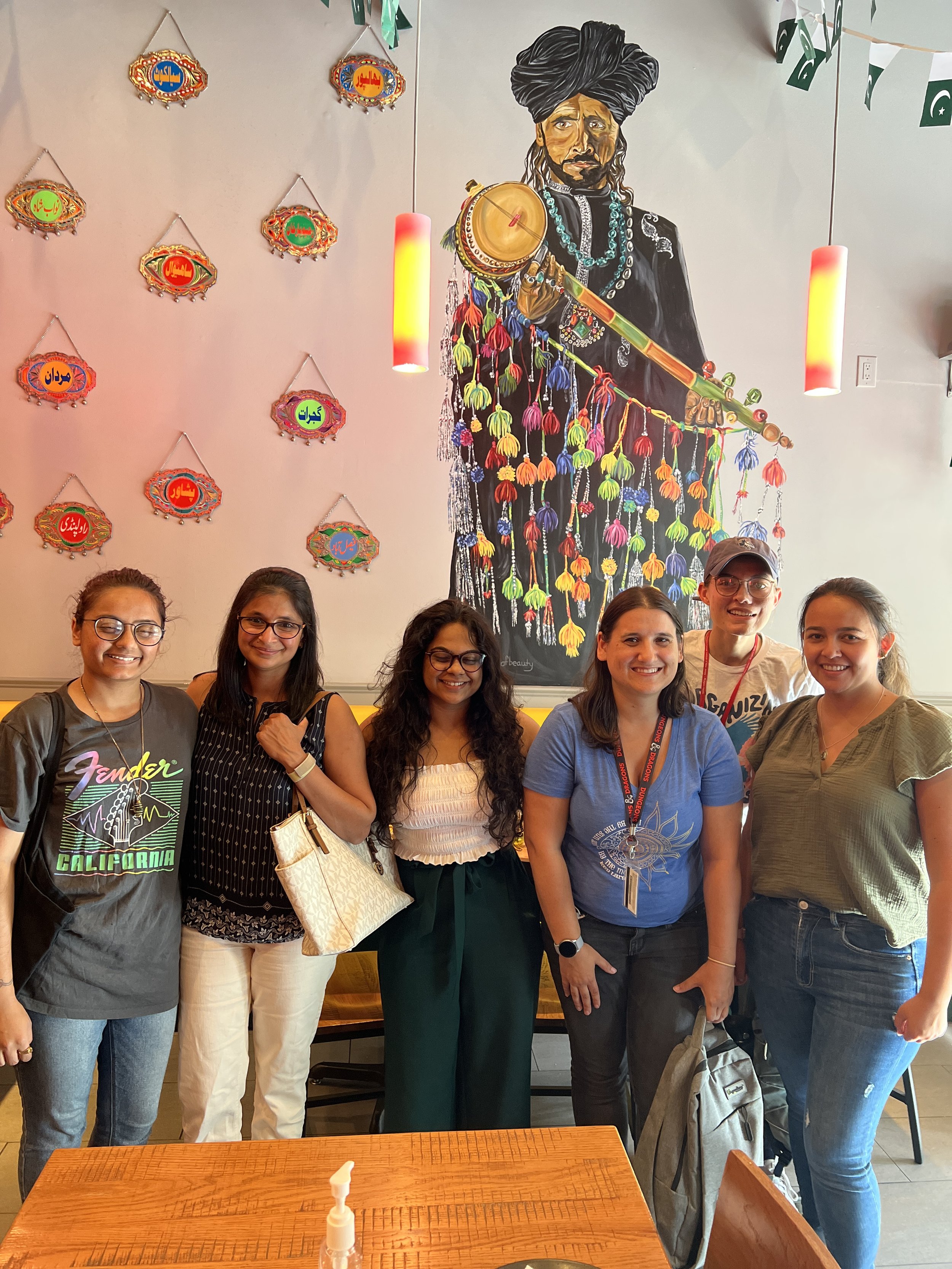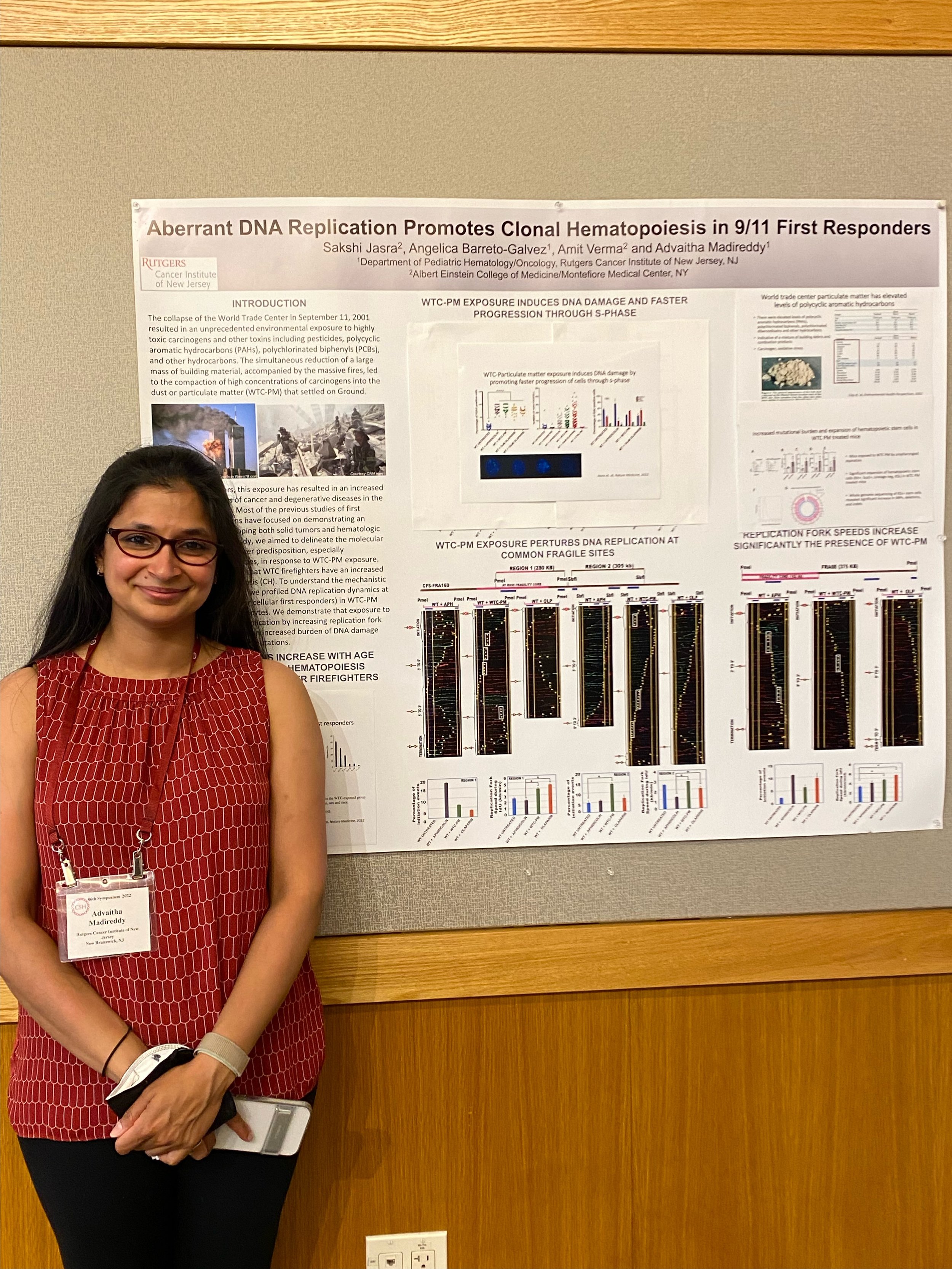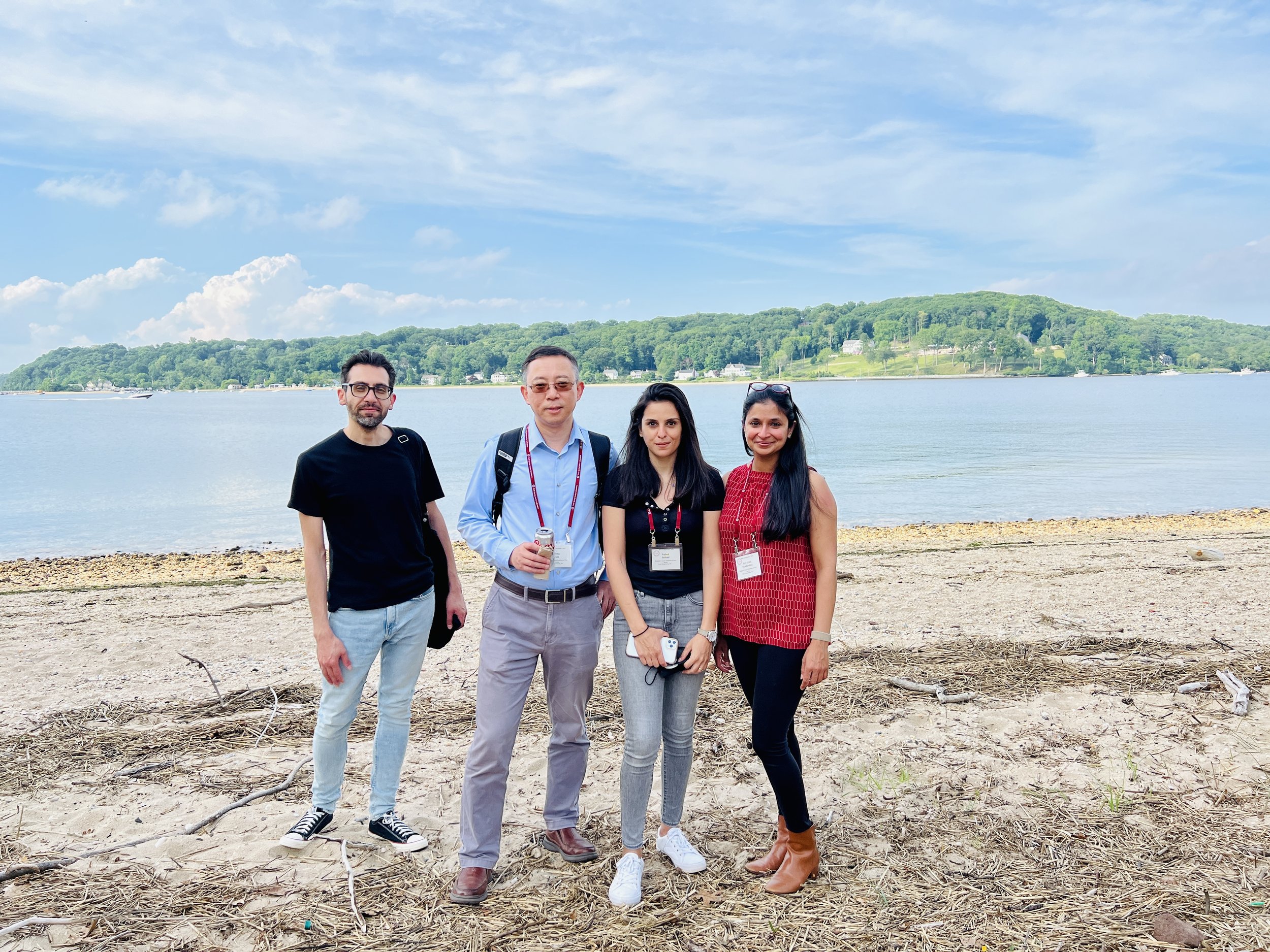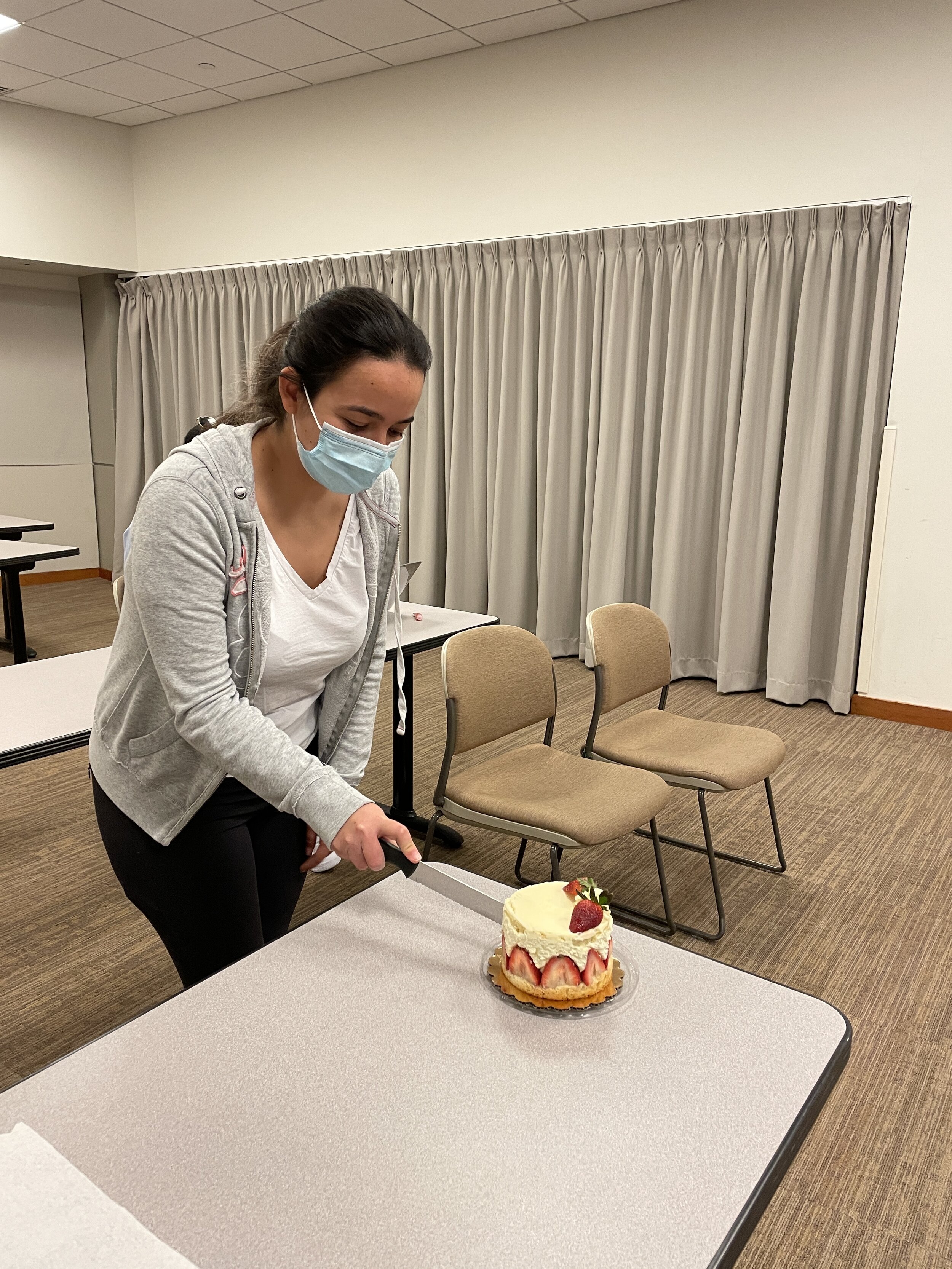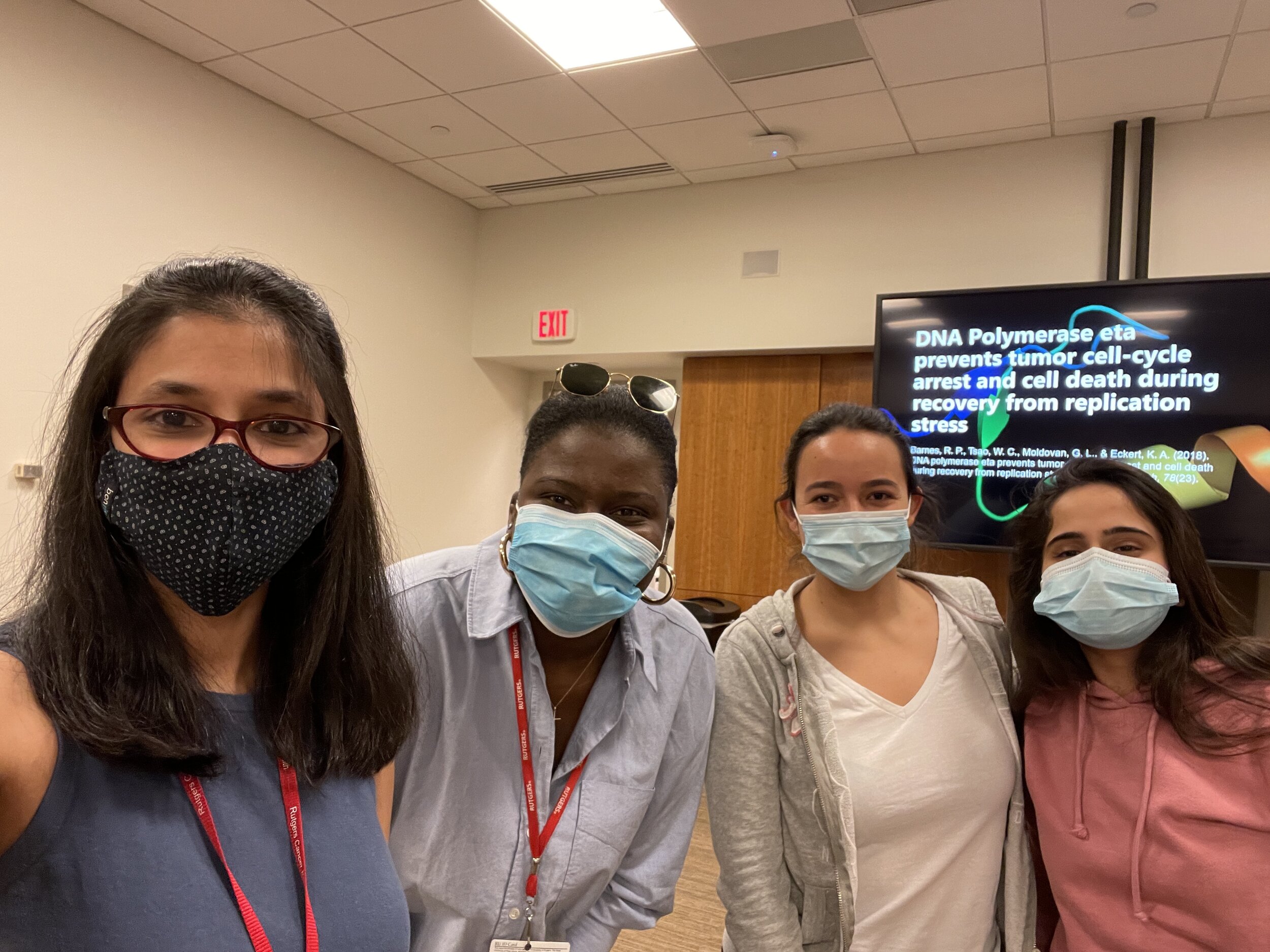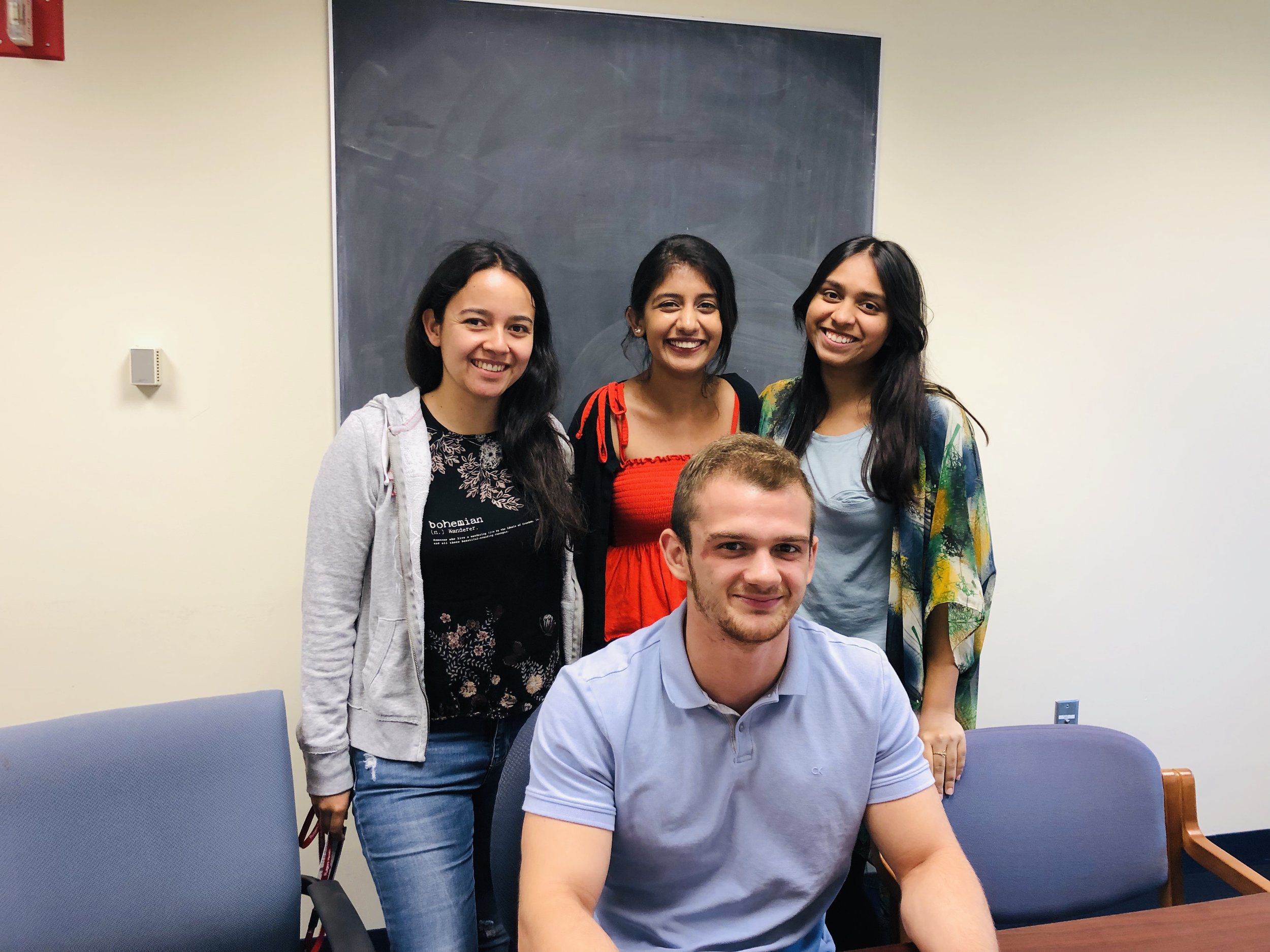
Research
The cells in the human body are constantly trying to overcome damage to their DNA that results from both exogenous (tobacco smoke, alcohol) and endogenous sources (Reactive aldehydes, ROS) of stress, to ensure normal cellular function. Dysregulation of critical cellular processes, such as DNA replication, repair or transcription, can lead to chromosomal aberrations that lead to malignancies and other debilitating diseases. The overarching goal of our research is to identify markers of replication stress that can help stratify patients in terms of prognosis and response to treatment measures.
Abstract image of Replication profiles depicting chromosomal breaks
Fragile site breaks in FA patient cells
CFS Sequences in Micronuclei
Research in our lab largely focuses on elucidating the molecular mechanisms that underlie the pathogenesis of cancer-predisposition syndromes and hematological malignancies. In particular, we are exploring the contribution of defective replication, transcription and repair to genomic instability in disorders like Fanconi anemia and Adult T-cell leukemia/lymphoma. In addition to our studies on determining the molecular basis of cancer-predisposition, we are also interested in understanding the primary mechanisms underlying clonal hematopoiesis, hematopoietic stem cell exhaustion/attrition and bone marrow failure using a human stem cell model.
Research Projects in the Madireddy Lab:
Understanding the Mechanisms Driving (Pre)Malignant Hematological States in 9/11 World Trade Center Collapse First Responders
Understanding the Mechanisms Driving Somatic Hypermutations at Genes Linked to Clonal Hematopoiesis
Understanding the mechanistic crosstalk between Translesion Polymerase Eta, Fanconi anemia (FA) associated nuclease (FAN1) and FANCD2 during replication stress
Implications of EP300 Dysregulation in Adult T-cell leukemia
Identifying Novel Molecular Mechanisms Dysregulated in the Absence of the PHF6 Tumor Suppressor in T-cell Acute lymphoblastic Leukemia
All of our strategies and approaches are aimed at identifying key markers (proteins, secondary structures, genomic hotspots, chromatin conformation changes) that could directly help in tailoring therapeutic regimes for cancer patients. In addition, since our research investigates changes at the earliest stages of the disease, we have the power to identify changes (in molecular mechanisms) that are causal in disease manifestation, while eliminating confounding consequential changes that occur downstream.
Our Approach
We study changes in DNA replication at the single molecule level using fluorescent microscopy, we use genomics to study secondary structure formation and collisions between DNA replication and transcription machinery by a specialized ChIP-seq analysis, and we study changes in topologically associated domains that are strongly implicated in transcriptional changes that destabilize tumor suppressor genes or activate proto-oncogenes.
Single molecule analysis of replicating DNA (SMARD)
Cells are sequentially pulsed with two halogenated nucleosides to label replicating DNA. Pulsed cells are lysed in agarose plugs and genomic DNA digested with a restriction endonuclease to produce 100 – 600 kb segments. The DNA is separated by pulsed field gel electrophoresis and the target segment identified by Southern blotting. A gel slice containing the target segment is excised and melted and the DNA in solution is stretched on silanized slides. Halogenated nucleosides are then detected by immunostaining. Biotinylated FISH probes identify the molecules of interest and are used to align the images of molecules to produce a composite replication profile.
Our Team
Advaitha Madireddy
Principal Investigator
Mrunmai Niljikar
Graduate Student - PhD Candidate
Ranran Zhang
Research Associate III
Jessica Van Horn
Former RUYES Intern - High School Teacher
Kritika Sharma
Former Undergraduate Intern
Angelica Barreto-Galvez
Graduate Student - PhD
Aastha Juwarwala
Technician/Former Undergraduate Student
Cecilia Bonilla Herrera
Former RUYES Intern - High School Student
Vasudha Kumar
Former Undergraduate Intern and Laboratory Technician
Julia Gagliardi
Research Teaching Specialist IV
Archana Pradeep
Undergraduate Student Intern
Priyanka Tiwari
Former Undergraduate Intern
Anam Shaikh
Former Undergraduate Student Intern
Rohan Lattupally
Former Undergraduate Intern
Lab Gallery
Farewell to Vasudha May 2021
Celebrating a month of birthdays - Happy Birthday to Angelica, Imelda and myself :)
Celebration for Angelica for successfully passing her Qualifying exam - March 2021
Congratulations Angelica!- March 2021
Happy Birthday Aris
Happy Birthday Angelica!
Congratulations Angelica on successfully completing your pre-qualifiers!
Happy Birthday Anam!
Prequalifying Exam Celebrations!
Christmas 2019
News
The Madireddy lab is officially open!!!
10/11/2018
The National Heart, Lung and Blood Institute has funded the Madireddy Lab’s R00 application
10/25/2018
A warm welcome to Sourabh Prakash Mudakannaver and Priyanka Tiwari, the newest members of our lab.
11/01/2018
The lab is now funded by the American Cancer Society Pilot Grant.
01/11/2019
A very warm welcome to Angelica Barreto, a new graduate student who is doing her PhD rotation in our lab.
02/11/2019
Welcome to Anam Shaikh, our newest undergraduate intern
02/11/2019
The Madireddy Lab is growing, we have now recruited our very first Postdoctoral Fellow. A warm welcome to Dr. Angelo Mandarino.
03/05/2019
A truly special moment… Our very first Graduate Student, Angelica Barreto-Galvez, has joined the lab to pursue her doctorate in Biomedical Sciences!
04/05/2019
A very warm welcome to our new Graduate Rotation Student, Thushara Nethramangalath!
04/08/2019
Welcome Kritika Sharma, our new Undergraduate Intern
05/20/2019
A warm welcome to Aris Magoulas who will be joining us for the summer . He is an undergraduate student at the Catholic University in Washington DC.
06/01/2019
Congratulations Angelica on successfully clearing your Pre-Qualifying Exam!
07/03/2019
A warm welcome to our new Undergraduate interns, Vasudha Kumar and Rohan Lattupally.
09/12/2019
Congrats to Angelica Galvez-Barreto for receiving a Graduate Student Supplement from the National Heart, Lung and Blood Institute
09/20/2019
Congratulations to Anam and Priyanka for getting into Medical School.
05/01/2020
A warm welcome to Imelda Saintilma and Vasudha Kumar, our new technical assistants in the lab.
10/01/2020
Congrats to Angelica Galvez-Barreto for successfully passing her qualifying exam.
02/19/2021
Congratulations to Vasudha Kumar for getting into NYU dental School
04/15/2021
The Department of Defense has funded the Madireddy Lab’s Idea Award application
06/01/ 2021
A warm welcome to Julia Gagliardi, our new technician, who is also pursuing her Master’s thesis in the lab
10/11/2021
Very happy to announce that our first paper is out in PNAS
11/30/2021
A warm welcome to Mrunmai Niljikar, who is pursuing her Master’s thesis in the lab.
12/01/2021
A very warm welcome to our new Graduate Rotation Student, Nikita Amin
12/05/2021
A warm welcome to our new Undergraduate intern, Aastha Juwarwala.
12/02/2021
Funding
NIH - National heart, lung and blood institute 2017-2022
American Cancer Society 2019
Department of Defense - 2021-2024
Rutgers Cancer Institute of New Jersey
Open Positions
Postdoctoral Fellow
We are always looking for scientists who are passionate about research. If you are interested in joining the Madireddy Lab, please send us an application with your cover letter (describing your interests), your CV, and contact information for 2-3 reference providers.
Research Associate/Lab Technician
We are looking for a lab manager/lab technician for the lab. Please contact us directly using the contact form.
Graduate Students
We invite enthusiastic graduate students from the Molecular Biosciences Graduate program for a lab rotation. Refer to the following website for faculty information:
https://molbiosci.rutgers.edu/faculty-research/faculty/faculty-detail/85-m-n/703-madireddy-advaitha
Contact Us
Rutgers Cancer Institute of New Jersey
195, Little Albany Street
New Brunswick, NJ 08901





